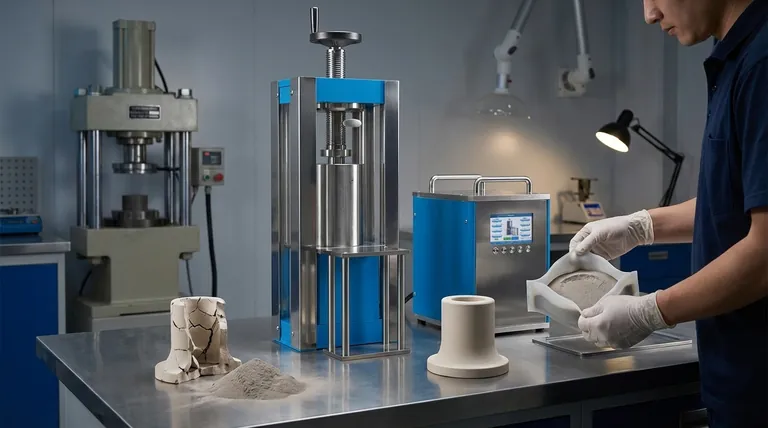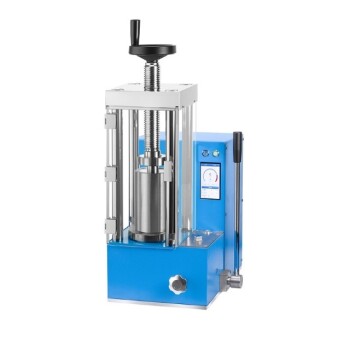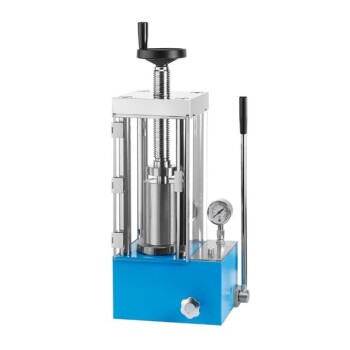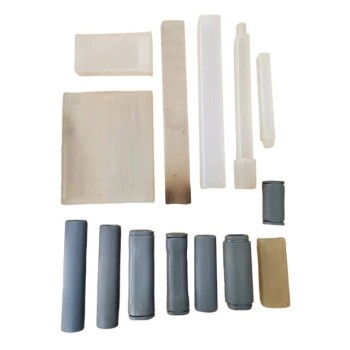It’s a frustratingly common scenario in materials science: after weeks of meticulous work, your new high-performance component is ready. It looks perfect. But when you put it to the test, it shatters catastrophically, far below its theoretical strength. You test another sample; this one holds, but just barely.
Your data is inconsistent, your confidence is shaken, and you’re left wondering: was it the powder batch? The sintering temperature? Or something else entirely? You’re back at square one, and the project deadline is looming.
The Frustrating Cycle of Trial and Error
If this sounds familiar, you are not alone. When faced with inconsistent mechanical properties, labs typically resort to a familiar playbook:
- Blame the Raw Material: You question the quality of your powder and order a new, more expensive batch, hoping it will solve the problem.
- Tweak the Sintering Process: You spend days or weeks adjusting furnace temperatures, ramp rates, and hold times, running dozens of cycles to find a magic window.
- Apply More Brute Force: You increase the pressure on your standard uniaxial press, assuming that harder is better.
These efforts are not just time-consuming; they have serious business consequences. Each failed test burns through expensive raw materials and energy. Project timelines are delayed, eroding trust with management or clients. Most critically, if the root cause isn't found, you risk shipping a product with hidden, unpredictable weaknesses.
The core issue with these approaches is that they are all attempts to fix a problem at the end of the process, when the critical damage has already been done.
The Hidden Culprit: A Flaw Baked In From the Start
The unreliable performance of your components often has nothing to do with your powder quality or your sintering skills. The real culprit is a hidden flaw introduced at the very first step of fabrication: powder compaction.
Most standard laboratory presses are uniaxial, meaning they apply force from one or two directions (top and bottom). Imagine pressing a handful of loose snow between your palms. The center becomes a dense ice ball, but the snow at the edges is loose and weak.
This is exactly what happens inside a uniaxial press. The powder directly under the press ram is heavily compacted, while the powder near the die walls is not. This creates density gradients—invisible internal zones of weakness and stress. No amount of subsequent sintering can fully heal these fundamental structural flaws. You are trying to build a strong wall with poorly made bricks.
The Physics of Pressing: Uniaxial vs. Isotropic
The solution isn’t to press harder, but to press smarter.
The key is to apply pressure uniformly from all directions simultaneously. This is called isotropic pressure. Think of the immense, even pressure at the bottom of the ocean. It doesn't squash objects flat; it compresses them equally from every angle.
In a material context, isotropic pressure forces powder particles together with perfect uniformity. This does two critical things:
- It eliminates density gradients. The entire part, no matter how complex its shape, has the same consistent density. There are no built-in weak spots.
- It triggers recrystallization. The intense, uniform energy creates a brand-new, ultra-fine grain structure throughout the material. Fine grains are the bedrock of material strength, as they create more boundaries that resist the formation and spread of cracks.
This understanding of the root cause changes the question from "How can we fix our failed parts?" to "How can we compact parts correctly in the first place?"
Solving the Root Problem: The Logic of Isostatic Pressing
To achieve this ideal, uniform compaction, you need a tool specifically designed to deliver isotropic pressure. This is the precise principle behind Cold Isostatic Pressing (CIP).
In a CIP system, the powder is placed in a flexible mold, which is then submerged in a fluid. This fluid is pressurized, transmitting that pressure perfectly and evenly to every surface of the mold. The result is a pre-sintered ("green") part that is uniformly dense, free of internal stresses, and already possesses a superior, fine-grained microstructure.
KINTEK: The Engineered Solution for Uniform Compaction
KINTEK's lab press machines, especially our Cold Isostatic Presses, are not just another piece of equipment; they are the embodiment of this solution. They were engineered from the ground up to address the fundamental physics of powder compaction.
While a traditional press fights against physics, a KINTEK isostatic press works with it. Our systems provide the precise, uniform pressure control needed to:
- Directly Eliminate the Root Cause: By ensuring isotropic pressure, our presses prevent the formation of density gradients and internal stresses from the very start.
- Build in Strength at the Particle Level: They create the optimal conditions for forming the fine-grained, homogenous microstructure that is directly responsible for superior strength, toughness, and reliability.
- Enable Complex Geometries: Because pressure is uniform, you can reliably produce complex shapes that are impossible to create with uniaxial pressing without introducing critical weak points.
Our presses are designed not as a brute-force tool, but as a precision instrument to give you control over the very building blocks of your material's performance.
From Preventing Defects to Engineering New Possibilities
Once you eliminate inconsistent compaction as a variable, you move from reactive problem-solving to proactive material design. Instead of spending your time diagnosing failures, you can focus on pushing the boundaries of what's possible.
With the predictable and superior green parts produced by a KINTEK isostatic press, you can:
- Accelerate R&D Cycles: Stop chasing ghosts in your process. Get reliable, repeatable results that allow you to make decisions with confidence and bring new materials to market faster.
- Manufacture the "Impossible": Reliably create complex components for demanding industries like aerospace, medical implants, and defense, where uniform strength is non-negotiable.
- Maximize Material Potential: Unlock the true performance of your advanced powders, knowing that the final part's strength is a true reflection of your material's quality, not a victim of a flawed process.
You're no longer just avoiding failure; you are proactively engineering success from the particle level up.
Stop battling inconsistent results and unlock the true potential of your materials. If you're tired of the cycle of trial and error and are ready to address the root cause of component failure, our team is here to help. We can walk you through how an isostatic press could revolutionize your workflow and help you achieve your most ambitious project goals. Let's discuss your specific material challenges and how our precision-engineered solutions can provide a definitive advantage. Contact Our Experts.
Visual Guide
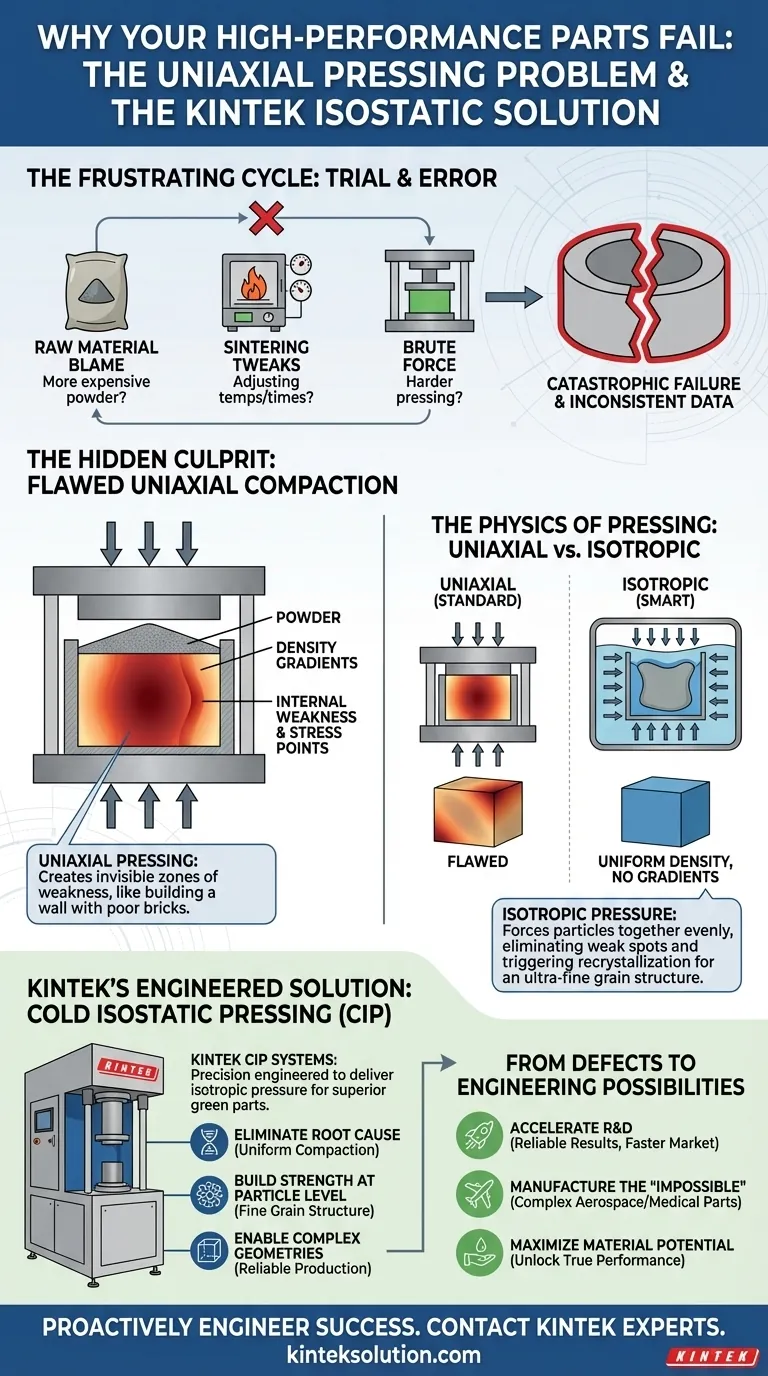
Related Products
- Electric Split Lab Cold Isostatic Pressing CIP Machine
- Automatic Lab Cold Isostatic Pressing CIP Machine
- Electric Lab Cold Isostatic Press CIP Machine
- Manual Cold Isostatic Pressing CIP Machine Pellet Press
- Lab Isostatic Pressing Molds for Isostatic Molding
Related Articles
- The Photon's Journey: Deconstructing the Soul of an ED-XRF Analyzer
- Beyond Brute Force: The Elegant Physics of Cold Isostatic Pressing
- Shaping vs. Perfecting: The Strategic Divide Between Cold and Hot Isostatic Pressing
- How Isostatic Pressing Delivers Superior Performance in Critical Industries
- Leverage in Miniature: The Physics and Psychology of the Compact Lab Press
